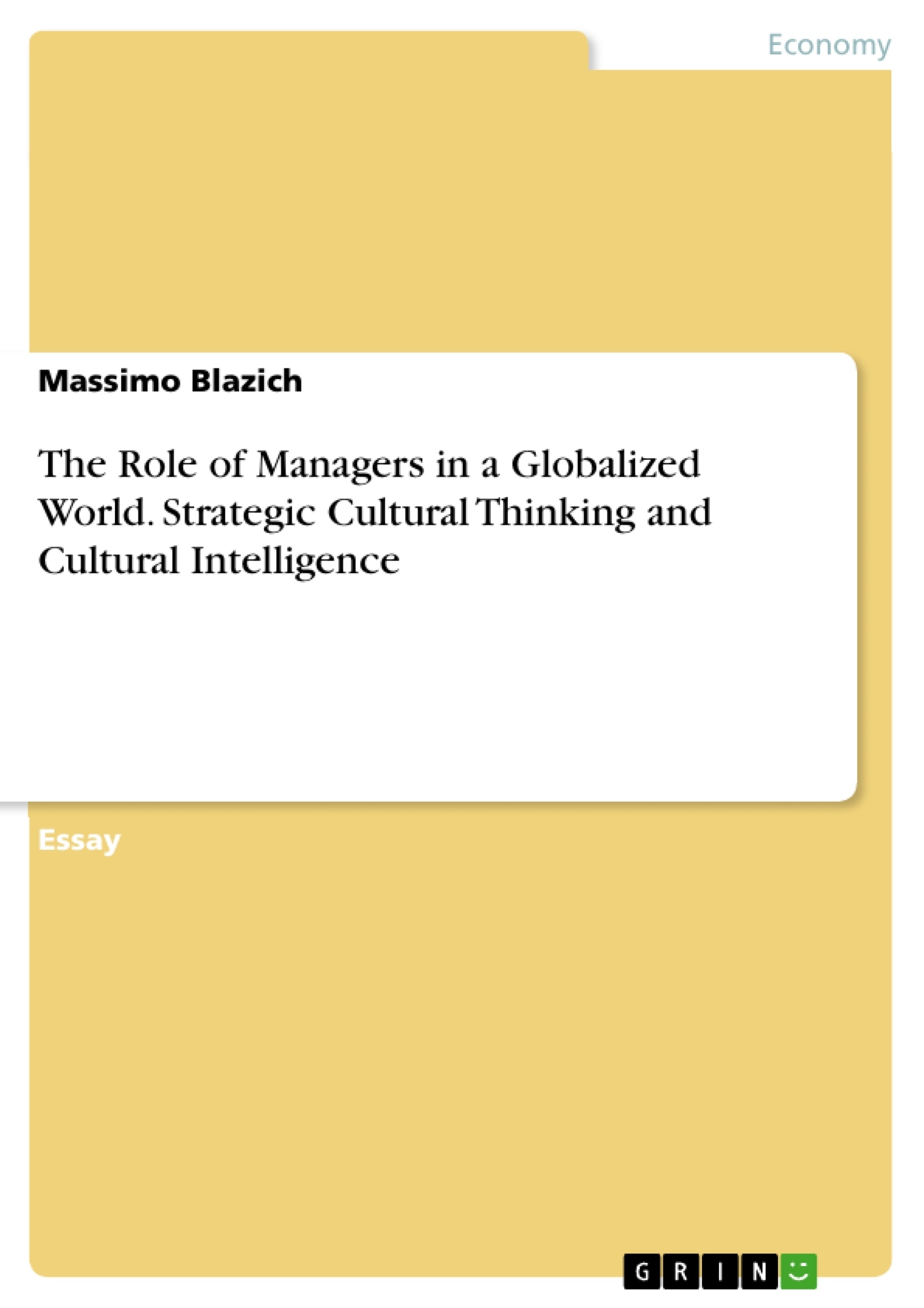Different cultures in the world interact differently with each other as the cultural seals imprinted in different areas of the world are ancient qualities of norms, sociability and collective forms expressed in a different way. In the globalized world, interaction with people from different corners of the earth and with different cultural perceptions is increasingly becoming a very important element to analyze and live, especially if these areas are reached by people who are moved to take care of their businesses, of teams to which to devote the economic interest of the company itself.
In this very varied contest, different cultures of different latitudes meet and must understand each other correctly in order to obtain the result of optimization of the requested performance, a real small revolution that concerns first of all the people and managers who are invested in this company. It is not for everyone to be within reach as the manager's mind must be open and evaluate together with his team the potential of this opportunity for expansion in a new market, therefore knowing the uses and customs of the people with whom he will have to deal and interact with the company effectively. Cultural intelligence and adaptations are very important practices for a manager who must involve the team to work locally in another distant reality.
Table of Contents
- Abstract
- Introduction
- Strategic Cultural Thinking
- Cultural intelligence
- Conclusions
- References
Objectives and Key Themes
This paper explores the importance of cultural intelligence and adaptation for managers in a globalized world. It emphasizes the need for managers to understand and navigate cultural differences effectively in order to achieve business success.
- Cultural intelligence as a key factor in global business success
- The role of strategic cultural thinking in managing diverse teams
- The impact of cultural differences on teamwork and organizational dynamics
- The importance of understanding and adapting to different cultural norms and values
- The application of Hofstede's cultural dimensions to global business settings
Chapter Summaries
- Introduction: This chapter introduces the concept of cultural diversity in the globalized world and its impact on team dynamics and managerial effectiveness. It emphasizes the importance of understanding and adapting to different cultural perspectives.
- Strategic Cultural Thinking: This chapter focuses on the importance of strategic cultural thinking in navigating cultural differences. It highlights the need for managers to develop their cultural intelligence and adapt their approach to managing teams in different cultural contexts.
- Cultural intelligence: This chapter delves deeper into the concept of cultural intelligence, exploring its various components, including metacognition, motivation, and behavior. It also discusses practical examples of how cultural differences can impact business interactions.
Keywords
Key terms and concepts discussed in this paper include cultural intelligence, strategic cultural thinking, globalized business, Hofstede's cultural dimensions, cultural diversity, teamwork, and leadership.
Frequently Asked Questions
What is Cultural Intelligence (CQ)?
Cultural Intelligence is the ability of a manager or individual to function and manage effectively in culturally diverse settings.
Why is strategic cultural thinking important for global managers?
It allows managers to evaluate the potential of new markets and adapt their leadership styles to the ancient norms and sociability of different regions.
How do Hofstede's cultural dimensions apply to business?
Hofstede's dimensions help managers understand differences in power distance, individualism, and other values that impact teamwork and communication.
What are the components of Cultural Intelligence?
The paper explores components such as metacognition (awareness), motivation (interest), and behavior (adaptation) in intercultural interactions.
What is the goal of optimization in a varied cultural context?
The goal is to achieve correct mutual understanding to optimize performance and effectively involve local teams in distant realities.
- Quote paper
- Massimo Blazich (Author), 2020, The Role of Managers in a Globalized World. Strategic Cultural Thinking and Cultural Intelligence, Munich, GRIN Verlag, https://www.grin.com/document/541504



